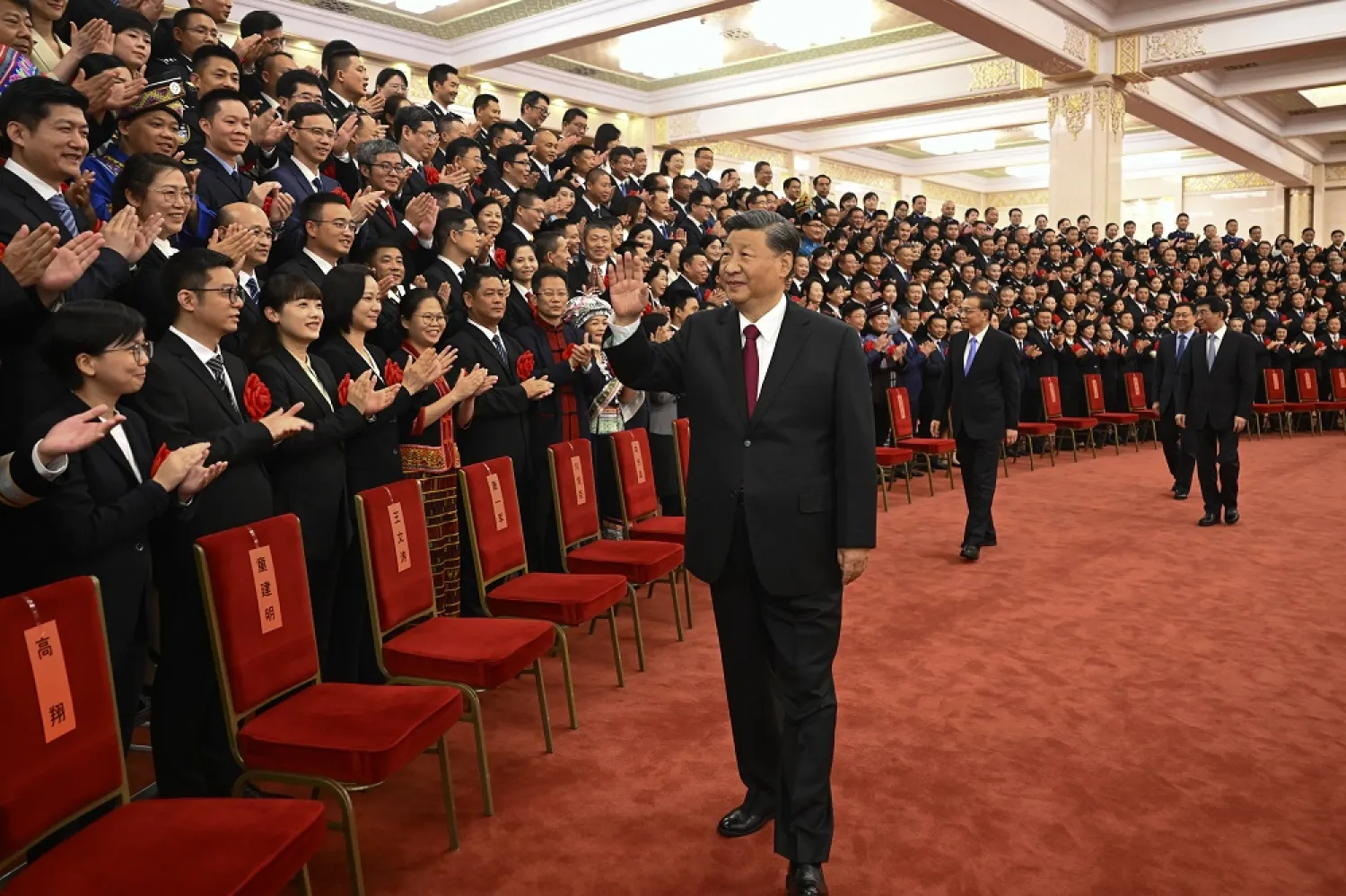China's ruling Communist Party will hold its five-yearly congress beginning on Oct. 16, with Xi Jinping poised to secure an historic third leadership term and cement his place as the country's most powerful leader since Mao Zedong.
The Politburo announced on Tuesday the start date for the congress, which typically lasts about a week and takes place mostly behind closed doors at the Great Hall of the People on the western side of Tiananmen Square in central Beijing.
Xi, 69, has steadily consolidated power since becoming party general secretary a decade ago, eliminating any known factional opposition to his rule. He is expected to exert largely unchallenged control over key appointments and policy directives at a Congress that many China-watchers liken to a coronation.
Despite headwinds that have buffeted his path to a third term - from a moribund economy, the COVID-19 pandemic and rare public protests to rising frictions with the West and tensions over Taiwan - Xi is poised to secure a mandate to pursue his grand vision for the "rejuvenation of the Chinese nation" for years to come.
Since assuming power, Xi, the son of a communist revolutionary, has strengthened the party and its role across society and eliminated space for dissent.
Under Xi, China has also become far more assertive on the global stage as a leader of the developing world and an alternative to the US-led, post-World War Two order.
"He will take China to an even more Sino-centric approach to policy, particularly foreign policy," said Steve Tsang, director of the University of London's SOAS China Institute. "He will also reinforce the importance of the party leading everything in China, and the party following its leader fully," Tsang said.
Xi's likely ascendancy to a third five-year term, and possibly more, was set in 2018 when he eliminated the limit of two terms for the presidency, a position that is set to be renewed at the annual parliamentary meeting in March.
Key personnel
A day after the 20th Party Congress, Xi is expected again to be conferred the roles of General Secretary of the Communist Party and Chairman of the Central Military Commission.
With little change expected in broad policy direction, key outcomes from the Congress will revolve around personnel - who joins Xi on the Politburo Standing Committee (PSC) and who replaces Premier Li Keqiang, who is set to retire in March.
Contenders to be premier, a role charged with management of the economy, include Wang Yang, 67, who heads a key a political advisory body, and Hu Chunhua, 59, a vice premier. Both were previously the Communist Party boss of the powerhouse southern province of Guangdong.
Another possibility for the premiership is Chen Min'er, 61, a Xi protege who is party chief of the vast municipality of Chongqing but has never held nationwide office.
The makeup and size of the next PSC, now at seven members, will also be closely watched.
Two current members have reached traditional retirement age, and China-watchers will look for whether the inclusion of any new member reflects a need to accommodate alternative viewpoints, although under Xi the notion of "factions" in Chinese politics appears largely to have become a relic.
"After putting his loyalists into positions of power with this party congress, Xi will have a bigger mandate to push through whatever policies he wants," said Alfred Wu, associate professor at the Lee Kuan Yew School of Public Policy at the National University of Singapore.
Beyond the congress
After the congress, many in China and globally will watch for Beijing's efforts to stave off a protracted economic downturn, which raises the chance COVID curbs being eased, although a lack of widespread immunity among China's 1.4 billion people and the absence of more effective mRNA vaccines remain constraints.
Beijing's strict "dynamic zero" COVID policy has led to frequent and disruptive lockdowns that have frustrated citizens, battered its economy and made China a global outlier.
Investors will also watch for how Beijing copes with souring relations with the West.
Xi's stated desire to bring Taiwan under Beijing's control will also be in focus during a third term, especially with tensions heightened following US House Speaker Nancy Pelosi's recent Taipei visit. Taiwan's democratically-elected government strongly rejects China's sovereignty claims.
Since assuming power, Xi has quashed dissent in the once-restive regions of Tibet and Xinjiang and brought Hong Kong to heel with a sweeping national security law.
Few China-watchers expect Beijing to make a military move on Taiwan anytime soon, and there is little sign of preparing society for such a high-risk step and the blowback it would provoke, such as heavy Western sanctions.
But for Xi, successfully resolving the "Taiwan question" would secure his place in Chinese history alongside Mao's.









